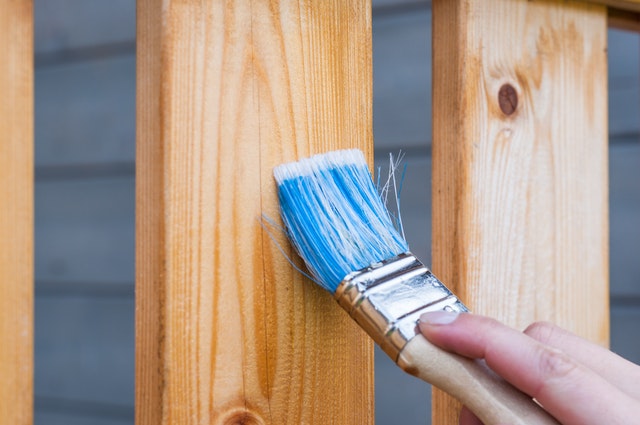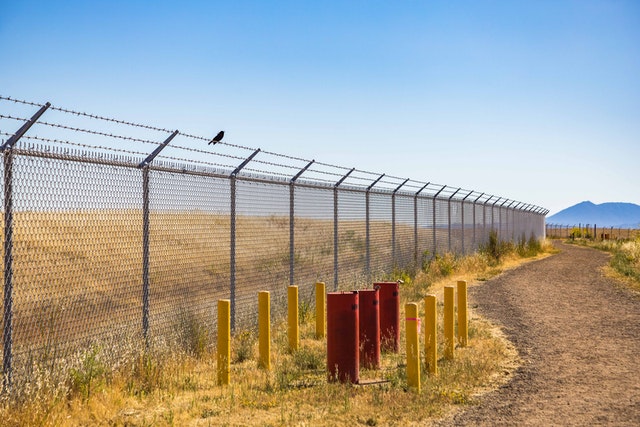What is a Good Neighbor Fence?
A good neighbor fence is a fence that is shared between two homes. You don’t have to have an ugly fence to your home. Instead, this type of fence has the benefit of creating a place where both your neighbors have the pretty side of the fence. If you share any expenses associated with the fence, they will be split evenly. This is a great design, since both sides are the same, it leaves less room for disputes between neighbors.
Let’s look at fence options for you! Click here
Divide and Conquer
To ensure the fences are built properly, they need to be built on the property line between the two houses. This way neither party is more responsible than the other for repairs and other issues. It’s also important to call a surveyor to verify the exact location of the property line. If you live in an area where there’s a homeowners association, you’ll have to check with their guidelines before planning your new fence.
What is the height limit for a fence?
Residential fencing laws limit the height of artificial fences in residential areas to four feet in front yards and six feet in backyards. Most cities, counties and subdivisions have restrictions on fence height and materials, so check before you build. Many local fencing laws contain restrictions on natural fences made of bushes or trees. Fences are commonly used to designate property boundaries. Many natural fences are restricted in height to a maximum of eight feet tall.
A neighbor constructed an unsightly fence that is inconsistent with the style of the surrounding neighborhood. Is the appearance of a fence subject to regulation?
State fencing laws guide fence requirements, such as the height of a fence, how far an owner must set back a fence, the use of prohibited material, the maintenance of a fence, and dangerous fences. Subdivision CC&Rs often require that fences be built, which may mean the landowner has to build a fence if it hasn’t been constructed already. Restrictions on the type of material an owner may use and height regulations ensure design consistency throughout the neighborhood. The homeowners association can request the owner of a property to build a fence that complies with the subdivision’s rules. When the owner refuses to comply with the restrictions, the association or neighbors may file a lawsuit to force compliance. Sometimes a neighbor might build a fence to keep something out. There are many states where the presence of a fence is presumed to be a nuisance when it is useless, when it’s built to annoy a neighbor, and when it exceeds spite fence height limitations. The neighbor may sue under these statutes for its removal.
My neighbor’s fence violates a local ordinance. How can I have the ordinance enforced?
The neighbor may not be aware of the law, so it is important to inform the neighbor of the violation. If the neighbor refuses to make changes, tell the city. The city will send a letter to the neighbor requesting conformance. If the neighbor refuses to conform, the city can fine the neighbor and sue the neighbor for non-compliance. You may have to take legal action against your neighbor if he or she does not remove the fence, but this will not result in the removal of the fence. If you would like the fence removed, a trial judge can issue an injunction against the neighbor.
Are Neighbors Allowed To Attach Things To My Fence?
This all depends on whether it’s your fence or not. If it’s yours, and not your neighbor’s, then the answer is no. You own it, and only you have the right to decide what happens to it. Include any other modifications you want to make to your tent, such as adding shelves, a hammock or other accessories. If the fence is owned by you and your neighbor, the situation gets a bit more complicated. Generally speaking, you can let anyone put things on their side of the fence as long as they are not putting anything up on yours.
What Should I Do If My Neighbor Attached Something To My Fence?
If someone broke into your yard, stole your bicycle, or attached something to your fence, it would be normal to feel a little concerned. It can be difficult to figure out what to do. The truth is that you can solve this issue in the same ways you can solve most other fence related problems, including unwanted modifications to your fence. If you aren’t sure what to do, take a look at the steps listed below.
Figure Out If It’s Really An Issue
Attachments are great, but there are attachments and then there are attachments. When you hang a planter off your fence, there’s a good chance that it’s not a big deal and you don’t need a lawyer. Although the decision to add a patio umbrella holder is not a question that needs to be discussed. It’s definitely worth a stern discussion though. On a similar note, you should also keep in mind that certain items might be inappropriate to remove. An example of this would be if a neighbor puts a memorial out for someone who has passed away at your house, you probably shouldn’t take it down. Think about the consequences before you get upset.
Talk To Your Neighbor
When speaking to your neighbor, be tactful and kind. Ask them politely why they are doing something or placing objects on your fence and find out how to make the situation better for them. Talking it out with your neighbor seems like an easy way to solve things. It usually is. When it comes to avoiding a fence war with your neighbor, talking things out is the best way to resolve any conflict. If nothing arises from talking about the situation, you will have to take a look at going to court.
Does Your Neighbor Have To Remove The Item They Attached To Your Fence?
If you are able to prove that the fence is yours in court, then you will probably be able to legally force your neighbor to remove the attachment. If your neighbor doesn’t remove the attached object in a specific number of days, then you can sue the town, get the city to issue a fine. With that said, you might also have a right to remove the attachments yourself in some cases, especially if your neighbor refuses to remove them. This depends on your local laws, and what the courts decide.






